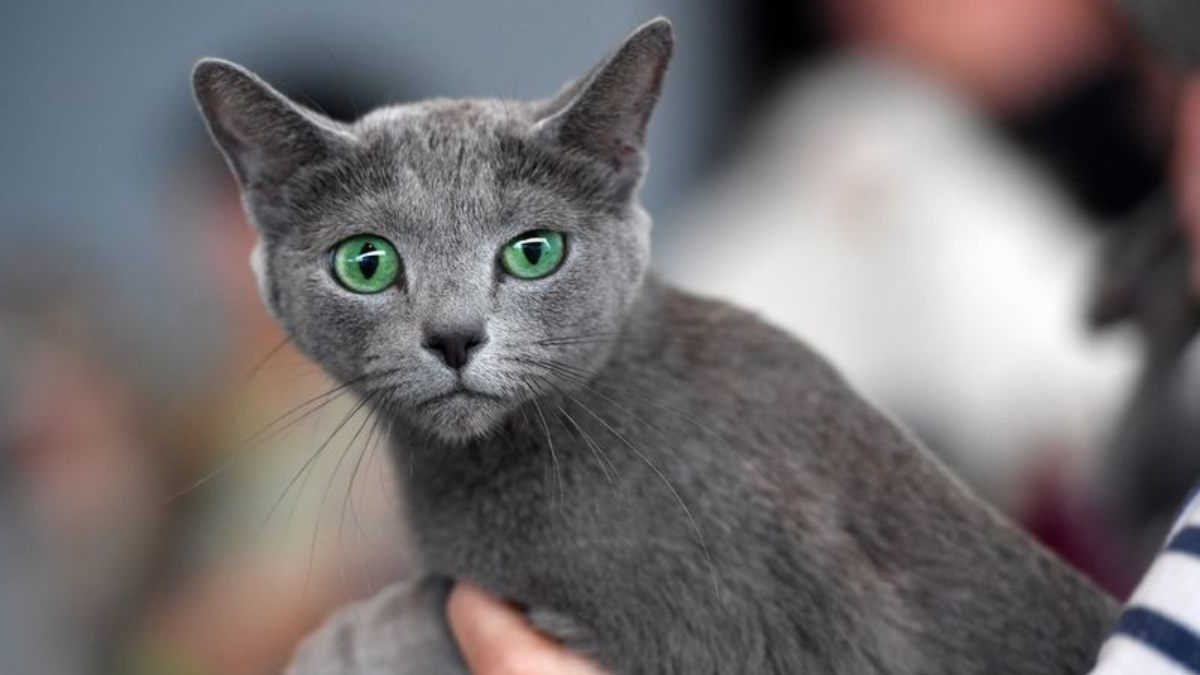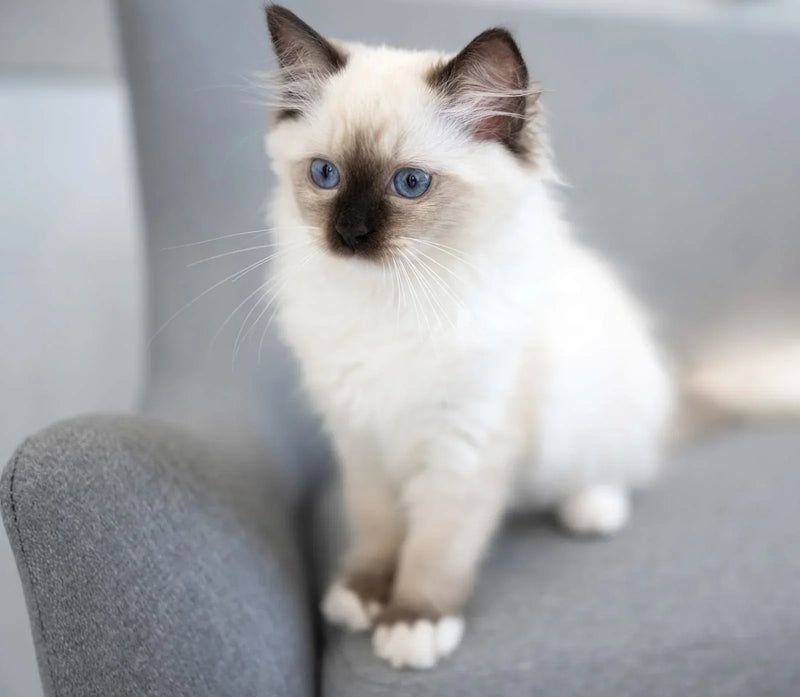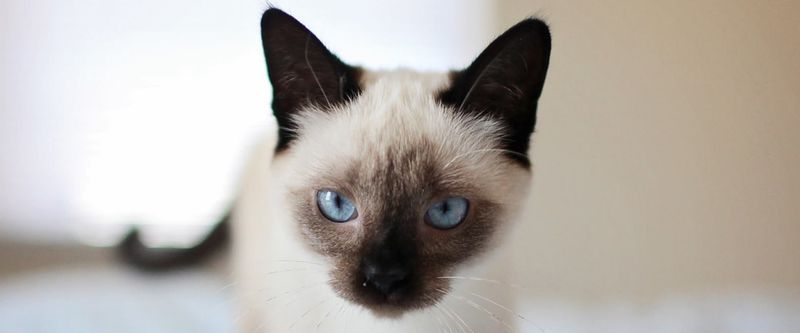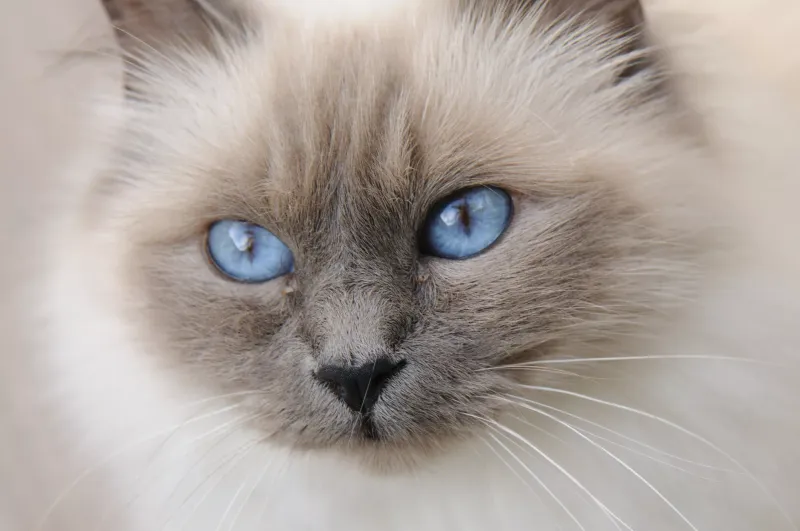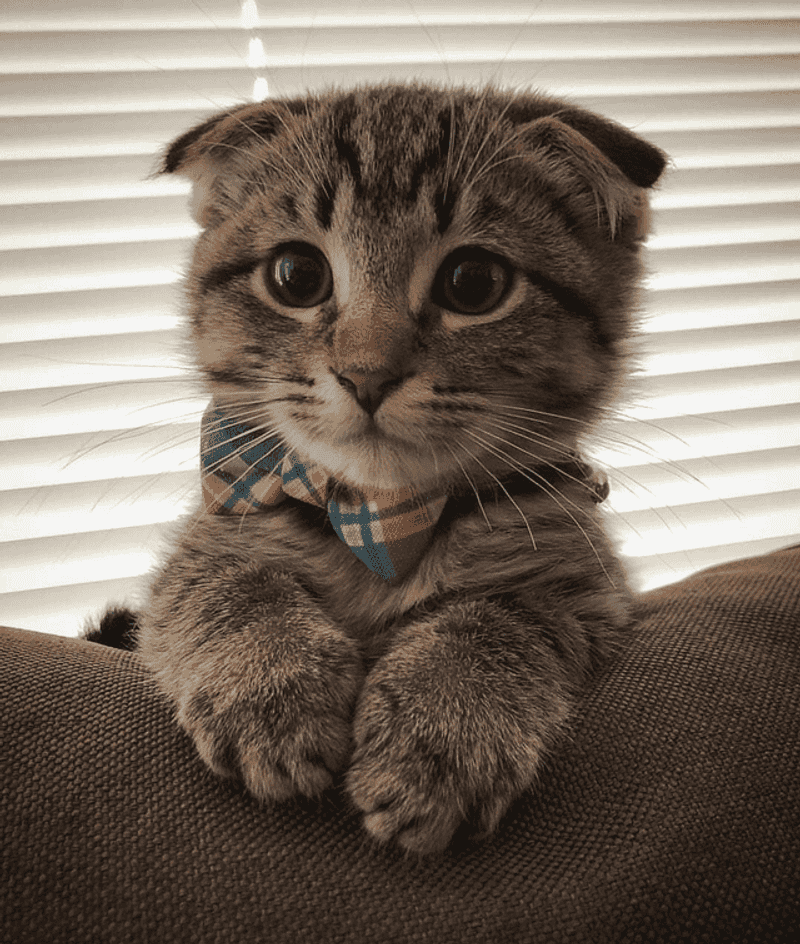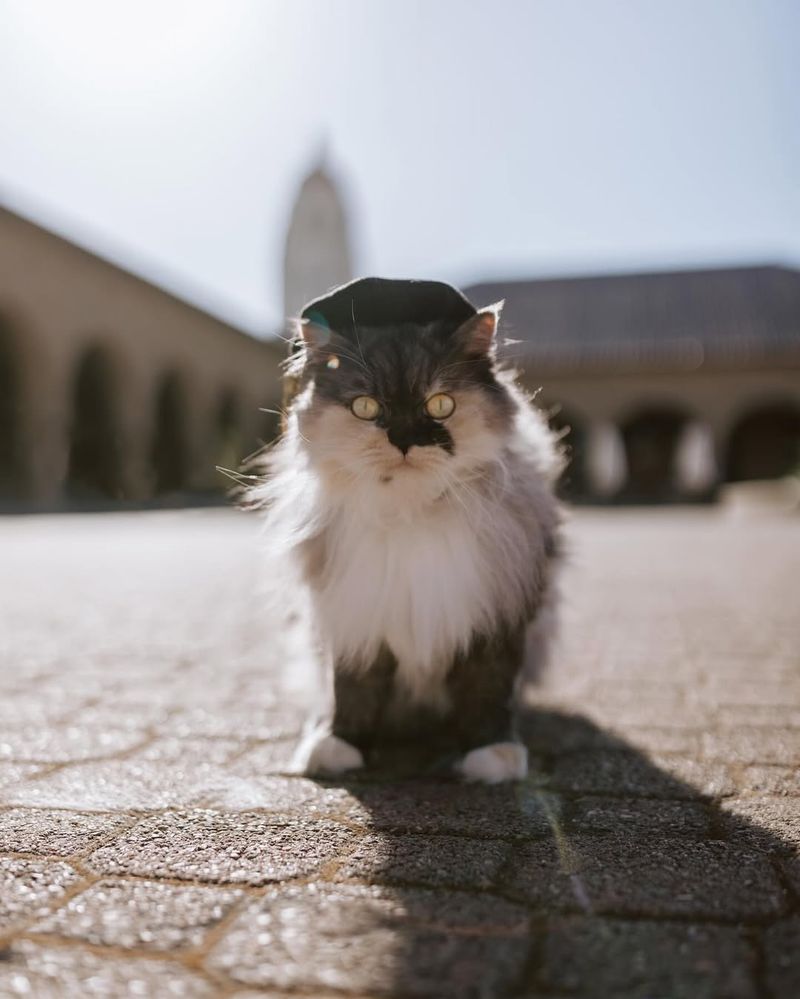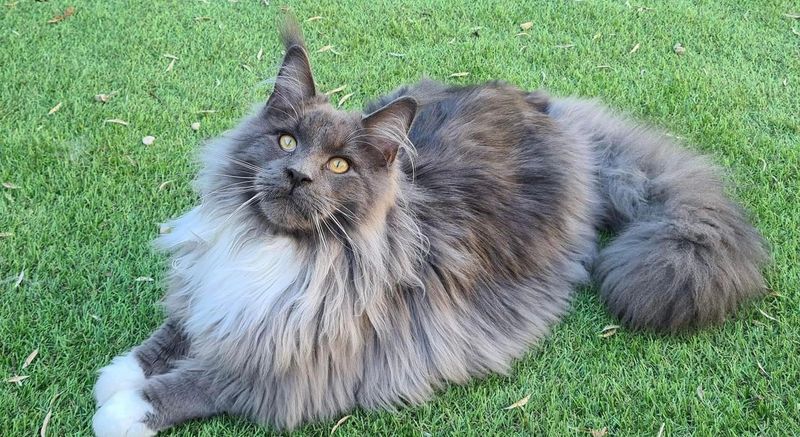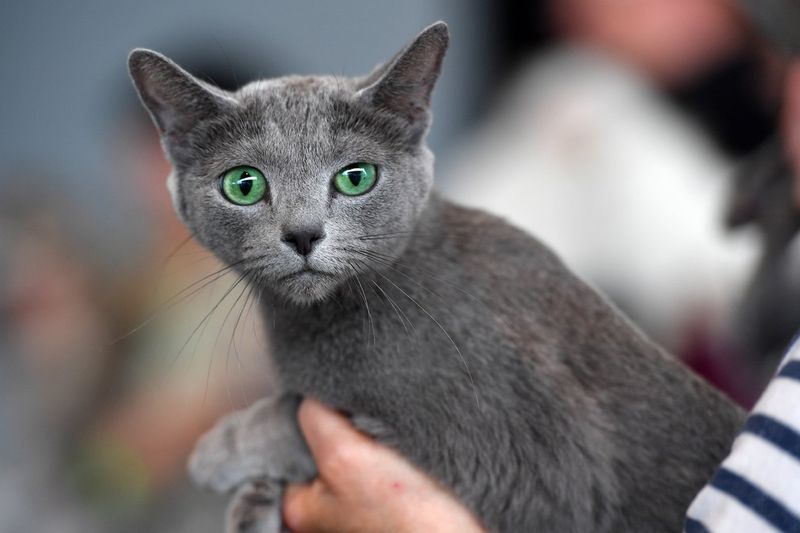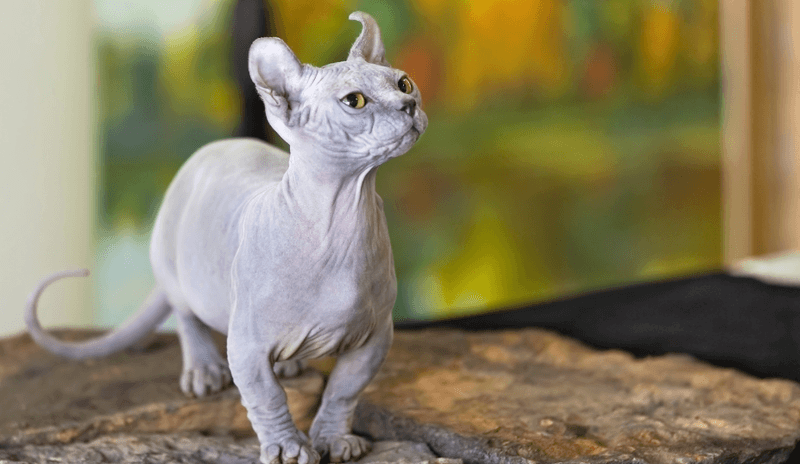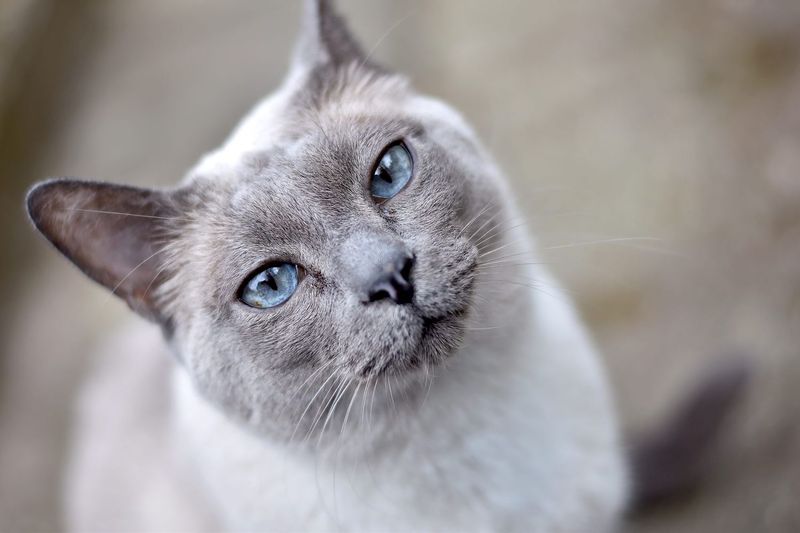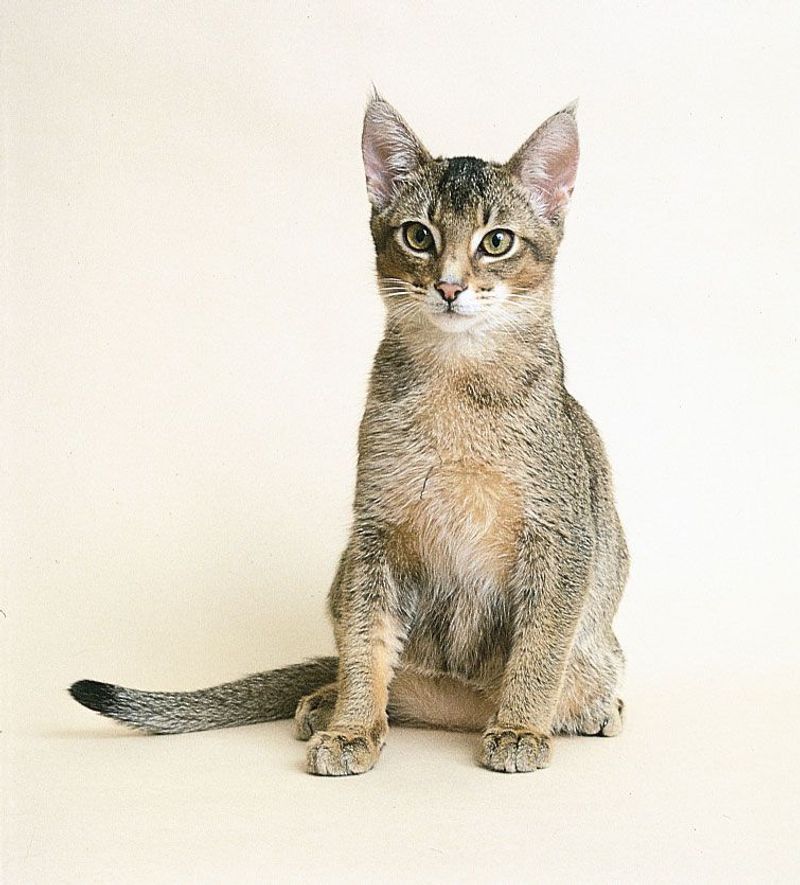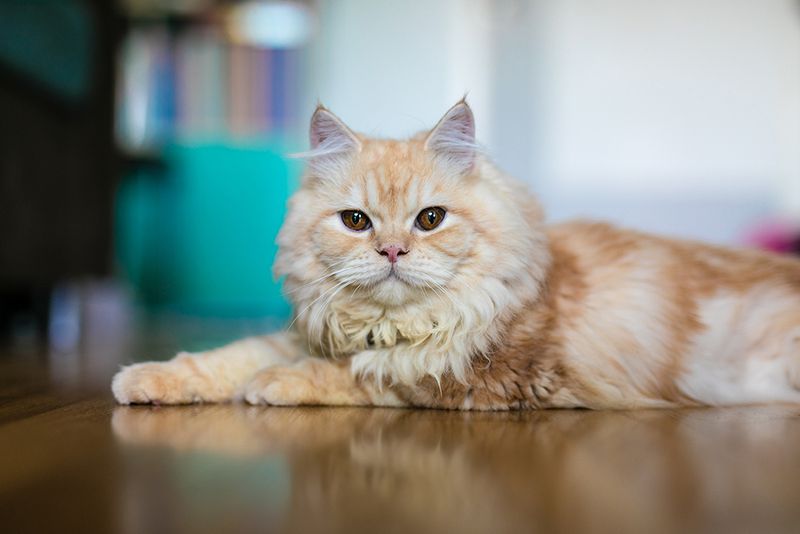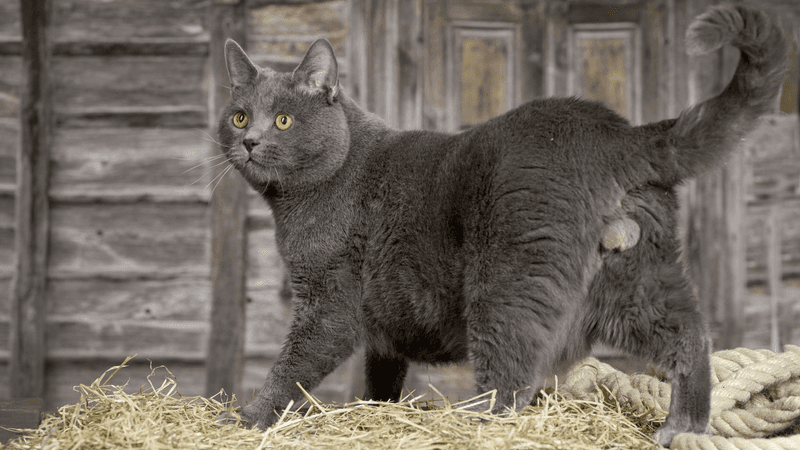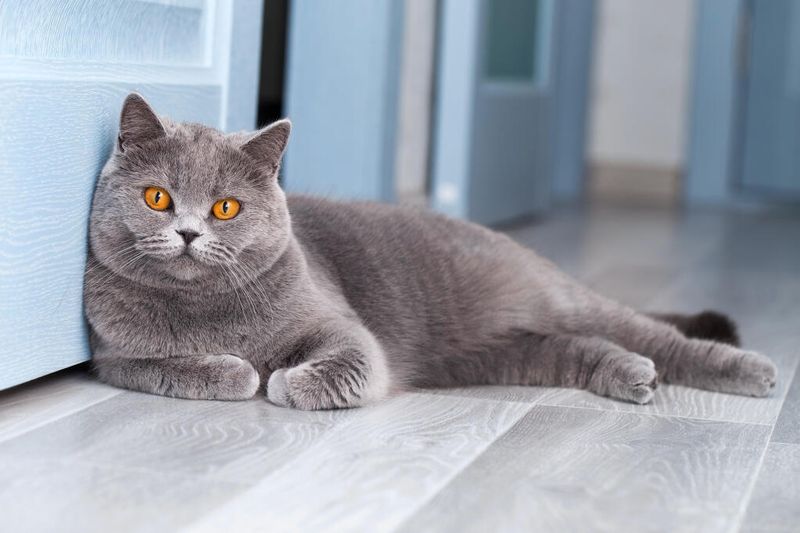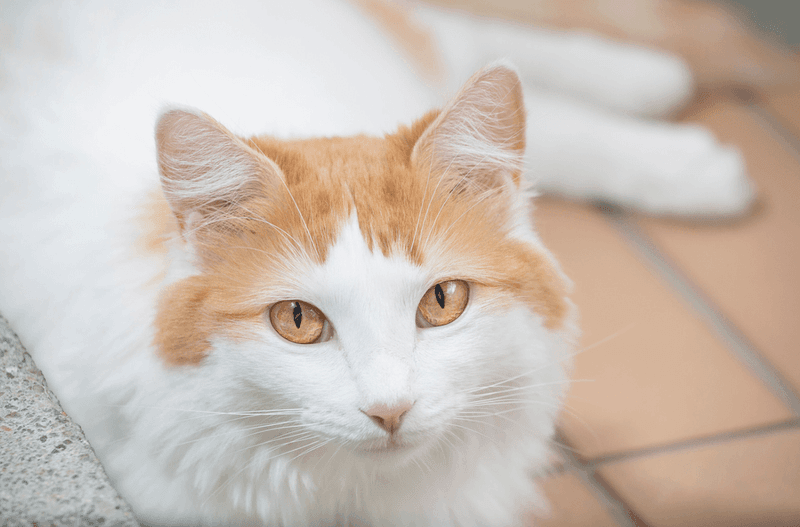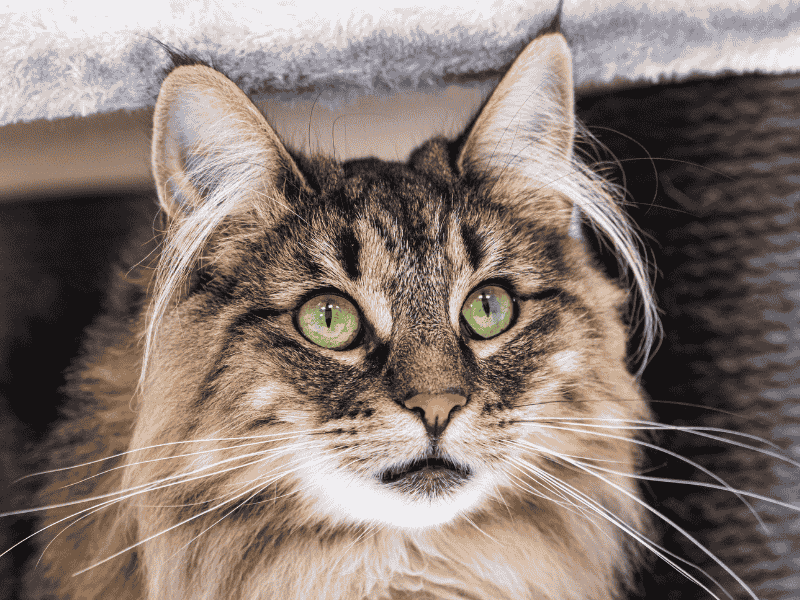📖 Table of Content:
Ever notice how some cats seem to mirror your every emotion? Cats are famous for their unique personalities, ranging from deeply empathetic to completely aloof. Some feline friends will comfort you during tough times, matching your mood perfectly. Others couldn’t care less about your feelings and prefer to live life on their own terms.
1. Ragdoll
Named for their tendency to go limp when held, Ragdolls are emotional sponges in the feline world. They absorb your feelings and respond with appropriate cuddles or playful antics to match your mood.
When you’re sad, these gentle giants will plop beside you, offering silent support with their striking blue eyes. Their intuitive nature means they’ll sense tension in the home and often try to diffuse it by being extra affectionate.
Ragdolls follow their humans from room to room like furry shadows, always checking in on your emotional state. This breed’s remarkable empathy makes them exceptional therapy cats for those struggling with anxiety or depression.
2. Siamese
Vocal and opinionated, Siamese cats don’t just sense your emotions—they’ll have a full conversation about them. Their legendary chattiness serves as an emotional barometer, with different tones for different moods they detect in you.
Feeling blue? Your Siamese will likely curl up closer than usual, their warm body pressed against yours while they offer comforting chirps. Excited about something? Watch as they match your energy with playful antics and enthusiastic meows.
These sleek, color-pointed companions form intense bonds with their humans, often becoming so in tune with your feelings that they seem almost telepathic. Their ancient Thai heritage as royal companions has evolved into modern-day emotional intelligence.
3. Birman
Birmans carry themselves with a quiet dignity while remaining incredibly attentive to your emotional state. These silky-furred companions with signature white paws seem to possess an uncanny ability to know exactly when gentle companionship is needed.
Unlike more demanding breeds, Birmans offer emotional support without overwhelming you. They’ll sit beside you during difficult moments, their soft purrs creating a calming soundtrack to soothe frazzled nerves. Their gentle headbutts serve as silent acknowledgments of your feelings.
According to breed enthusiasts, Birmans were once temple cats in Burma, where they absorbed the peaceful, compassionate nature of the monks who kept them. This spiritual heritage seems evident in their intuitive understanding of human emotions.
4. Scottish Fold
Those distinctive folded ears frame faces that seem perpetually concerned about your well-being. Scottish Folds are masters at matching their energy to yours, creating an emotional synchronicity that’s almost eerie.
Having a stressful day? Your Fold will sense it immediately, offering quiet companionship without demands. Their moderate activity level means they won’t try to cheer you up with wild play when you’re down—instead, they’ll curl up nearby, keeping a watchful eye.
Scottish Folds excel at physical comfort too, often reaching out a paw to touch you when they sense emotional distress. Their rounded appearance and sweet expressions make them natural emotional support animals, offering a soothing presence during life’s ups and downs.
5. Ragamuffin
Ragamuffins are emotional velcro, sticking close when they sense you need a furry shoulder. These substantial cats combine the sensitivity of their Ragdoll ancestors with an extra dose of intuition about human feelings.
Parents of Ragamuffins often report these cats appearing seemingly out of nowhere when tears start flowing. Their tendency to maintain eye contact while gently placing a paw on your arm creates a powerful connection during emotional moments. Unlike more independent breeds, they’re genuinely invested in your happiness.
Their plush, rabbit-like fur provides therapeutic comfort during petting sessions, releasing stress-reducing endorphins for both of you. Ragamuffins adapt their behavior to match your emotional state, becoming playful companions or quiet supporters depending on what you need.
6. Maine Coon
Gentle giants with emotional intelligence to match their impressive size, Maine Coons respond to your feelings with remarkable sensitivity. Their expressive chirps and trills seem specifically designed to check in on your emotional well-being.
Despite their wildcat appearance, Maine Coons are famously attuned to human emotions. They’ll often position their substantial bodies strategically beside you during difficult times, creating a warm, vibrating comfort zone with their therapeutic purrs. Their playful antics emerge precisely when you need cheering up.
Maine Coons possess a unique emotional resilience, remaining steady during household stress while offering support. Their dog-like tendency to follow you around means they’re always monitoring your emotional temperature, ready to provide furry intervention when your mood dips.
7. Russian Blue
Behind those intense green eyes lies a cat with remarkable emotional perception. Russian Blues operate like feline mood readers, subtly adjusting their behavior to complement your emotional state without making a show of it.
These silver-blue beauties offer a particular brand of emotional support—present but never pushy. When you’re upset, a Russian Blue won’t demand attention but will quietly position themselves nearby, creating a calming presence. Their reserved nature means they respect emotional boundaries while still offering companionship.
Russian Blues excel at picking up on anxiety, often appearing just before stressful situations as if they can anticipate emotional needs. Owners frequently report these cats slipping into their laps moments before they themselves realized they needed comfort.
8. Sphynx
Don’t let their alien appearance fool you—Sphynx cats are emotional heating pads wrapped in warm suede. Their lack of fur creates a biological need for close contact, making them extraordinarily attuned to your physical and emotional state.
Sphynx owners report these cats will press their warm bodies against your chest during moments of sadness or anxiety, often placing a paw directly over your heart. Their constant body contact serves as both physical and emotional therapy. Without fur as insulation, they radiate heat that feels purposefully comforting.
These wrinkly companions develop intense bonds with their humans, becoming emotional barometers in the household. A Sphynx will often stare deeply into your eyes, creating a connection that feels almost telepathic in its emotional understanding.
9. Tonkinese
Emotional intelligence comes wrapped in a mischievous package with Tonkinese cats. These Siamese-Burmese blends combine vocal communication with an uncanny ability to detect the slightest shift in your mood.
Feeling stressed? Your Tonkinese might bring you their favorite toy as a distraction or offer entertainment through their playful antics. Their moderate voice means they’ll check in on you without the demanding loudness of their Siamese ancestors. These social butterflies prioritize emotional connection above all else.
Tonkinese cats are particularly responsive to voice tones, reacting differently to happy, sad, or stressed human sounds. Their aqua-blue eyes seem to look straight into your soul, creating a sense that they truly understand what you’re feeling, not just responding to your behavior.
10. Abyssinian
Active and engaged, Abyssinians express emotional solidarity through participation rather than cuddles. These ticked-coat companions sense your feelings and respond with appropriate energy matching—calming down during your quiet moments or providing playful distraction when needed.
Unlike lap cats, Abyssinians show their emotional connection by staying involved in your activities. Feeling productive? Your Aby will be right there, “helping” with your projects. Feeling down? They’ll perform their funniest antics to lift your spirits without invading your personal space.
Their ancient Egyptian heritage seems evident in their regal awareness of household emotional currents. Abyssinians maintain an emotional presence that feels supportive without being clingy, making them perfect companions for those who need space while still craving connection.
1. Persian
Persians exemplify feline indifference with their perpetually unimpressed expressions. These flat-faced aristocrats of the cat world operate on their own emotional frequency, largely unconcerned with your feelings or needs.
Crying your eyes out? A Persian might glance your way before returning to their nap, completely unbothered by your emotional display. Their famous aloofness isn’t personal—they simply prioritize their comfort above all else. That gorgeous coat requires significant maintenance, leaving little energy for emotional labor.
While occasionally affectionate on their own terms, Persians refuse to be emotional support animals. They expect to be admired and cared for without reciprocal emotional investment. Their imperial attitude suggests they believe humans exist to serve cats, not the other way around.
2. Chartreux
Chartreux cats maintain emotional neutrality with impressive consistency. These blue-gray French felines observe your emotional storms from a safe distance, maintaining their famous poker face regardless of household drama.
While not unkind, Chartreux prefer emotional self-sufficiency both for themselves and their humans. Their quiet, undemanding presence can be comforting, but don’t expect them to adjust their behavior based on your feelings. They’ll continue their routines with monk-like dedication regardless of your emotional state.
Historical accounts claim Chartreux lived alongside Carthusian monks who maintained vows of silence—perhaps explaining their independent emotional nature. These cats offer companionship without emotional entanglement, perfect for those who prefer their relationships straightforward and uncomplicated.
3. British Shorthair
Despite their soft and cuddly appearance, British Shorthairs are known for their emotionally reserved demeanor. They form polite but somewhat distant relationships with their human companions.
Having a meltdown? Your British Shorthair will acknowledge your existence with a slow blink before continuing their important napping schedule. Their famous reserve extends to emotional situations, where they prefer to observe rather than participate. They’re the friends who pat your shoulder awkwardly during a crisis.
Despite their cuddly appearance, British Shorthairs typically dislike being held and rarely seek emotional connection through physical contact. They operate as independent contractors in your home rather than emotional support animals, offering companionship without the complication of feelings.
4. Turkish Van
Maintaining a strong sense of emotional independence, Turkish Vans often focus on adventure rather than offering comfort. Their love of swimming means they’d rather explore water than stay close during emotional times.
While playful and engaging, Turkish Vans operate according to their own emotional schedule. Your feelings simply don’t factor into their decision-making process. Their ancient lineage as semi-feral swimming cats from Turkey’s Lake Van region explains their self-sufficient nature.
Turkish Vans form bonds with their humans but maintain emotional boundaries that would impress therapists. They’ll join family activities when it suits them but vanish during emotional moments. Their striking appearance with auburn markings on white fur matches their fiery, independent personalities.
5. Norwegian Forest Cat
Rooted in their heritage as independent hunters, Norwegian Forest Cats value emotional self-reliance. Their majestic presence is marked by an awareness of their humans without depending on them emotionally.
While not unfriendly, Norwegian Forest Cats approach relationships as equal partnerships rather than emotional support roles. They’ll sit near you but rarely on you, maintaining physical boundaries that reflect their emotional independence. Their wild ancestry as survival experts in Scandinavian forests explains their self-contained nature.
These cats excel at entertaining themselves, showing little concern when you’re upset or stressed. Their emotional detachment isn’t coldness—just confidence in their ability to handle life without drama. Norwegian Forest Cats offer a refreshing relationship based on mutual respect rather than emotional neediness.
